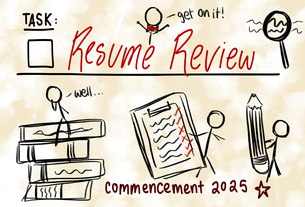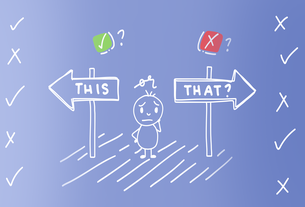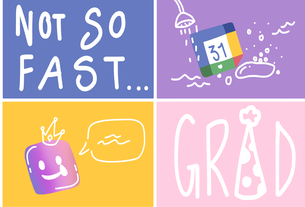Crimson opinion writer
Anuksha S. Wickramasinghe
Latest Content
Who Told You You’re the Antihero?
I’m not scared anymore of people giving up on me, walking out on me, or even simply forgetting me. But, I don’t want little kids growing up to think they’re an antihero or a villain, when in reality, it’s the world that turned its back on them. I’ll still be a seeker, and when I catch the snitch, I’ll remember I’m worthy, of like and of love, of community and camaraderie, of advocacy, of justice.
How Pandemic Era TikTok Bolstered the Neurodiversity Movement
Two years later, I still have TikTok. I’ll be the first to admit that the app was my introduction to the neurodiversity movement and broader disability justice. It allowed me to find solace and solidarity with my own neurodiversity and identity. It let me know that I had a community, both online and off.
Hi, Mom. Does it Scare you that I’m Writing this Column?
Hi, Mom. If you’re reading this, does it scare you that I’m writing this column? It’s honestly too late now since it’s now the start of the second semester of my writing it, and it’s basically public information that I have ADHD. Even if I may have been able to hide it, it’s a path that’s now foreclosed, no matter how much ableism and judgment I face.
To Be a Neurodivergent Harvard Student
Even if I am not as hyper-productive as Harvard typically necessitates, my ADHD and I — on both good and bad executive function days — still belong here all the same. And you do, too.
NeuroDiverse Thoughts on Neurodiversity
Neurodiversity isn’t merely about neurodivergent individuals. It’s about all of us; after all, considering our brains will never be the same, your experiences contribute to neurodiversity, in the most literal sense, as do mine.
The Heroes of Our Own Stories
It’s all the more reason why your understanding and empathy towards everyone is crucial towards fostering both acceptance of neurodiversity and an even better Harvard community.
Accessible Needs to be Accessible: Here’s How
The AEO must be improved from a broader disability justice perspective, which encompasses neurodiversity. Understanding where the AEO can improve begins with delving deeper into the difficulties behind the AEO process.
The Success Dilemma & Casual Ableism
I think about this dilemma a lot because of the countless experiences I’ve had and the stories shared by other neurodivergent folk. Due to our perceived success, neurodiversity was a precluded identity. It’s one form of casual ableism, a form fundamentally says that you can’t be “insert positive trait” and neurodivergent, though that’s far from the case.
In Defense of Self-Diagnosis
This piece is a letter to the girl who’d spend hours on Google, desperately trying to find anyone, anybody’s story, to know that she wasn’t the only one who felt the way she did. It’s for anyone who needs an answer but knows that obtaining the piece of paper that confirms it all “officially” is a near impossibility. For those seeking, hoping, wishing to know that something’s going on, that I am not the bad, the wrong, the broken thing.
Breaking Free of the Box: Finally Knowing You’re Neurodivergent
I write this from outside the box, having left behind the performance of perfection. After nineteen years, I finally know that there was never anything wrong with me. Unknowingly neurodivergent? Yes. Wrong? Never, though it takes a lot of courage to remember. From a former boxmate, I urge you to consider breaking the box of put-togetherness. Punch out of perfection. Here outside the walls, we’ll fight for the freedom to be everything we are, neurodivergent and more.
Beyond the Blocking Group
Since we typically choose groups based on who we want to spend time with, it’s all too easy for groups to become isolated bubbles of like-minded individuals selected based on freshman year social preferences. These bubbles collectively reinforce social stratification as they stay intact over the next three years. Rather than encouraging us to get to know those outside our usual communities, such policies can cement groups and stifle social exploration and connectivity past “our people.”
Affirming my ADHD: So What if I’m “Too Much”?
We stand to gain so much more from being our authentic, genuine selves. If no one else, I — the guide of the land of late-night, the girl who wrote a comedy special to Harvard as part of her application — am always here to hear your story and laugh and cry by your side from sunset to sunrise.
Never Have I Ever … Had a Normal College Semester
Regardless of what the next three years hold, I’m excited. I don’t need to be the main character or have a glow up; a normal day in the life with meals in dining halls and classes in person would be plenty. It’s been hard to have hope this year, but I can’t help but get excited for the in-person fall. Until then — never have I ever had a normal college semester.
Say My Name (Correctly)
As we trek, navigating a world that makes us doubt our names, remember, your name is your power. Your name is one of the first things given to you, and with it, the history and legacy of all those who came before you. Its melodious syllables are yours to fill with stories of triumph and tragedy alike, as you continue to write and define your name and who you are. It represents all that you were, are, and will be.





